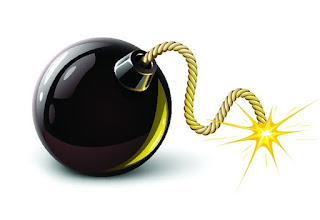In storytelling, there's a concept known as the "ticking clock." The idea is something will happen, and the time is specific and unalterable. Sort of like a bomb timer. It doesn't necessarily have to be a bad thing, but it does need to be extremely important and have a huge impact on the current plot. The neat thing is the audience is fully aware of the clock (and probably the consequences), but the characters don't necessarily need to know. It depends on why the clock exists. Using a ticking clock creates tension, and, if used well, incredible tension.
Some examples are: in Star Wars the Death Star about to fire; old cowboy movies with a lady tied to train tracks; and of course the Lord of the Rings with Frodo destroying the ring (not as specific, but absolutely a ticking clock). You see, these clocks drive the plot forward, providing no chance for meaningful rest and also ratchet up the tension as the deadline approaches. Without it, then there's no reason for rush or panic. Can you imagine how boring it would be to watch a James Bond film where he has all the time in the world to foil the evil plot?
Nearly anything can be a ticking clock; it's all in how it's used. How many ways can you think of to use a glass of water? See, it's that easy. Of course, it does require a plan for the story, as it's pointless to throw in a timer without having a plan in motion. Having a clear consequence is key, as is the purpose of the clock. But, all rules can be broken. Having a character facing a countdown, with no understanding of how or why does create tension, due to the mystery of it, and the audience will then be desperately trying to figure out what's going on. That creates interest and is always a good thing.
After all, one of the biggest maxims in writing is: leave the audience wanting more!
- M









No comments:
Post a Comment